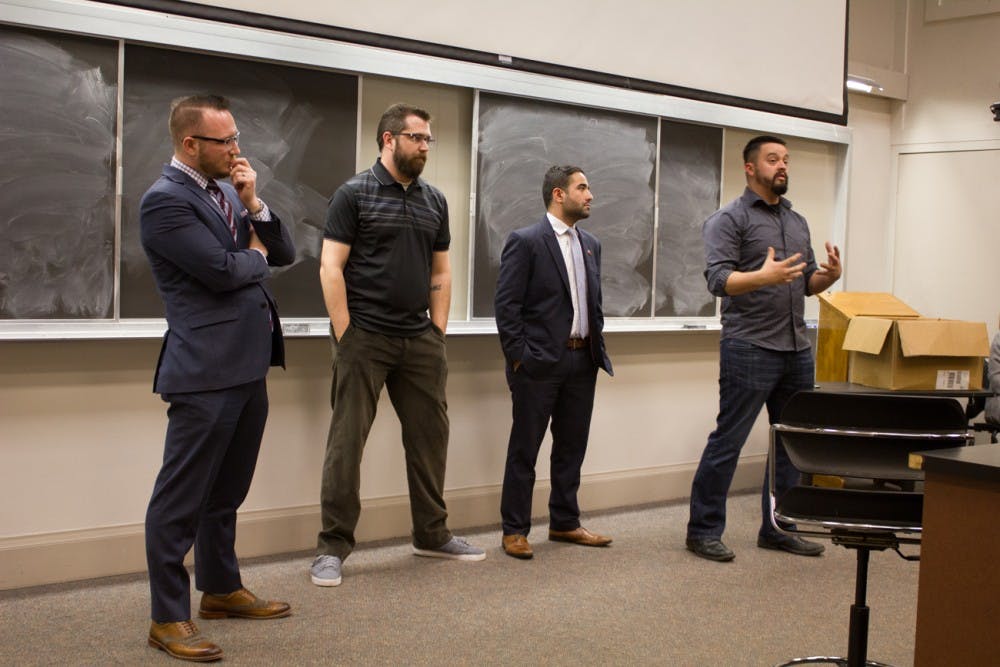The College Republicans hosted a veterans panel Monday to engage students in learning how going through war strengthens or changes veterans’ political views and to discuss policy changes that would benefit veterans and their families.
Ali Hiestand, a third-year College student and chair of the College Republicans, said Concerned Veterans for America asked them to host the event.
“We’ve been trying to create a stronger relationship with the veteran community, and one of the directors of Concerned Veterans for America actually reached out to me about wanting to do more events with us,” Hiestand said. “I think it’s an issue that’s really important to a lot of our members.”
Concerned Veterans for America is an organization that “advocate[s] for policies that will preserve the freedom and prosperity that [veterans and their families] so proudly fought and sacrificed to defend,” according to their website.
“We want to become more aware of the individual problems veterans as a group face that are different from problems that most of the rest of us are exposed to and figure out how we can work to combat those problems,” Hiestand said.
Attendees of the event listened to a panel which was composed of four veterans — Teddy Verona, Shaun Rieley, Jason Corral and Scott Urgin. Each veteran shared stories of their unique backgrounds, which ranged from a rough childhood in Chicago to an affluent upbringing in Orange County, Calif.
Teddy Verona, a veteran who left the Marine Corps in 2013 after serving in Afghanistan, said due to his upbringing outside of the U.S., he became aware at a very young age of the hatred some people in other countries have for Western ideals. After returning from Afghanistan, he said he had a difficult transition.
“One of the most difficult things for me when I came back from Afghanistan is when I was walking around realizing that everyone was walking around like nothing was wrong,” Verona said. “Why is everyone walking around like everything’s fine when there’s a whole population of people out there who want to kill you?”
A main point of discussion for the panel was the need for more aid and support for veterans and their families today. Panelists specifically pointed to issues with the U.S. Department of Veterans Affairs.
The VA is the second largest cabinet department with a 2017 budget of $182.3 billion. However, the VA has had issues in the past with unethical behavior such as misuse of funds, as well as allegations of long waiting lists and falsified records.
Jason Corral, a U.S. Air Force veteran who served in Iraq and current grassroots worker for the Concerned Veterans of America, encouraged students to speak out.
“For us, we believe that with partnerships with guys like you and getting veterans engaged and involved, we can really rally that voice together,” Corral said. “Instead of raising awareness and money, we can storm Washington D.C. We can go up there and demand accountability from our representatives.”
After he got out of the military, Corral said that he started to get more involved in policy, even though he came from a rough Chicago background and was unfamiliar with the American political system.
“These politicians, these leaders, they’re just people. And, I can read books the same way they can read books and I can get involved the same way they can get involved,” Corral said. “I realized that I don’t have to just sit down and be depressed.”
Several members of the College Republicans have family who have served in the military and many of the current members are in ROTC and training to be in the military.







